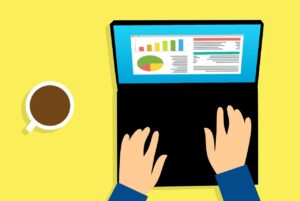A couple of years ago, I wrote a column about how to have a retirement worth saving for. It ended with a quote from personal finance educator Barbara O’Neill, who reflected on how the pandemic disrupted many retirees’ plans.
“It wasn’t just two years lost, it was two good years,” O’Neill said then. “You don’t know how many of those you have left.”
One of my younger colleagues objected to that sentiment, saying it was a jarring ending to an otherwise upbeat column. But my older co-workers got it. Those of us who currently have good health and energy don’t know how long those blessings will last. There’s no guarantee we’ll get to enjoy the retirements we have planned.
That lesson was driven home in July 2023, when a longtime colleague died at age 61. We’d had many talks over the years about the retirement he had envisioned. It’s heartbreaking that his dreams will never happen.
But his death was the push I needed to make my own decision. By the time you read this, I will have retired from my job at personal finance site NerdWallet.
In my latest for ABC News, learn how I made the decision to retire.
 This week’s top story: Smart Money podcast on using AI to budget and save and debit vs. credit card pros and cons. In other news: What the 2024 Social Security COLA could mean for your retirement, what parents of college students need to know about new FAFSA, and first-time home buyer affordability report.
This week’s top story: Smart Money podcast on using AI to budget and save and debit vs. credit card pros and cons. In other news: What the 2024 Social Security COLA could mean for your retirement, what parents of college students need to know about new FAFSA, and first-time home buyer affordability report. This week’s top story: Smart Money podcast on spring-cleaning, and paying off different types of debt. In other news: What could happen if Congress doesn’t make changes to Social Security by 2035, mortgage could be harder to get in a credit-tightening era, and 4 tips for a meaningful and successful retirement.
This week’s top story: Smart Money podcast on spring-cleaning, and paying off different types of debt. In other news: What could happen if Congress doesn’t make changes to Social Security by 2035, mortgage could be harder to get in a credit-tightening era, and 4 tips for a meaningful and successful retirement. Today’s top story: 3 ways to fight inflation and win the long game. Also in the news: Why you shouldn’t bank on your business to fund your retirement, how to save on school supplies by tapping your community, and how to tell if a credit card annual fee is worth it.
Today’s top story: 3 ways to fight inflation and win the long game. Also in the news: Why you shouldn’t bank on your business to fund your retirement, how to save on school supplies by tapping your community, and how to tell if a credit card annual fee is worth it. Today’s top story: After a fall, crypto winter sets in. Also in the news: A new episode of the Smart Money podcast for kids on where money comes from, can job-hopping help retirement savings, and these states are having a tax-free back to school shopping weekend.
Today’s top story: After a fall, crypto winter sets in. Also in the news: A new episode of the Smart Money podcast for kids on where money comes from, can job-hopping help retirement savings, and these states are having a tax-free back to school shopping weekend.